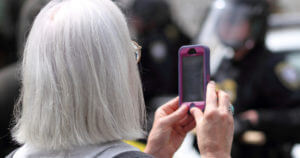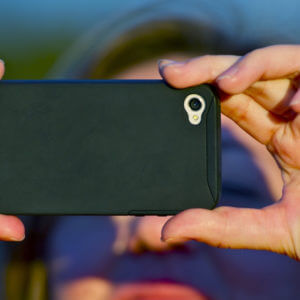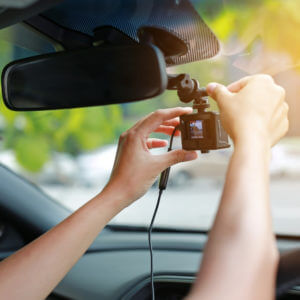 Over the last few years, phone recordings of police interactions have exploded across the media landscape, sometimes capturing murders or violent beatings by law enforcement. There is inherent value in these recordings, which can exonerate innocent people and shed light on illegal practices within the police force. While you do have the right to record police in Illinois, there are some circumstances where it can land you in big trouble.
Over the last few years, phone recordings of police interactions have exploded across the media landscape, sometimes capturing murders or violent beatings by law enforcement. There is inherent value in these recordings, which can exonerate innocent people and shed light on illegal practices within the police force. While you do have the right to record police in Illinois, there are some circumstances where it can land you in big trouble.
 Can I Film the Police on My Cell Phone?
Can I Film the Police on My Cell Phone?
Back in 2014, the Illinois Supreme Court ruled that a law prohibiting people from recording police during an arrest without their consent was unconstitutional on first amendment grounds. Now, anyone can record an on-duty official without their consent, effectively striking down a two-party consent law (meaning both parties need to know they are being recorded). However, there are eavesdropping laws to consider. It is still illegal to record police in private and when they are off-duty without their permission. Breaking these laws may be considered a class three felony.
Can I Be Arrested for Filming the Police?
It’s possible depending on how you approach the filming. Police officers may still threaten to arrest you if they see you recording them, so it’s important that you know your rights and record officers in a legal way. Defense of your behavior may later be backed up by police body cameras, so make sure you are:
- Not hiding the fact that you are recording
- Not obstructing the officer or keeping him/her from doing his/her job
If officers do threaten you with arrest, tell them calmly that you are not breaking the law. If you are nevertheless arrested, with proper legal representation it is unlikely you will be convicted criminally. However, there are certain circumstances under which you might be successfully prosecuted including:
- You secretly recorded police without their consent, otherwise known as “surreptitious exception”
- You hid recording equipment to catch an officer
- The police officer had a reasonable expectation of privacy
These laws have been criticized by legal experts and civil rights groups like the ACLU for their vagueness and potential for murky exceptions. For example, since most people have cell phones (which act as recording devices), it can be hard to prove in court that a recording was planned in advance. Some argue that it can be hard to define what a reasonable expectation of privacy is, especially if a police officer is recorded in a private setting (ie. home, office) and is in fact, breaking a law.
What This Legislation Means for Police
These laws actually also make it easier for police or law enforcement to record citizens during an investigation. All the permission police often need now is from the state’s attorney, as they no longer always need to go to a judge for a warrant. This increases their opportunities for eavesdropping.
If You’ve Been Arrested for Recording the Police, Contact a Chicago Lawyer Today
If you are a victim of police brutality, or have resisted arrest while recording police, and have captured the footage on your cell phone, call the Chicago area attorneys at Mitchell S. Sexner & Associates LLC immediately. We have been successfully representing criminal defendants and injury victims for well over 25 years. Contact our offices at (312) 644-0444 to get started today. If we believe you are a victim of a civil-rights violation at the hands of police, no fees are charged for our investigation.

 Can I Film the Police on My Cell Phone?
Can I Film the Police on My Cell Phone?